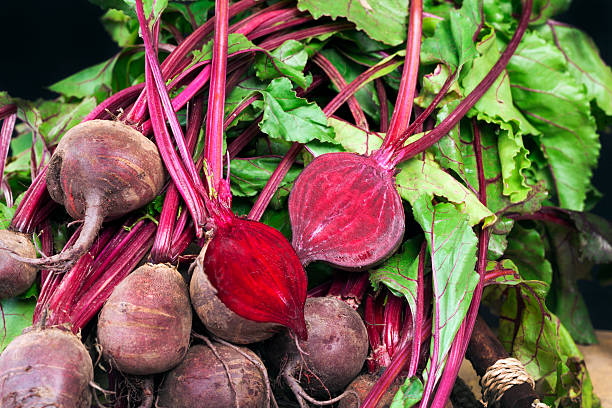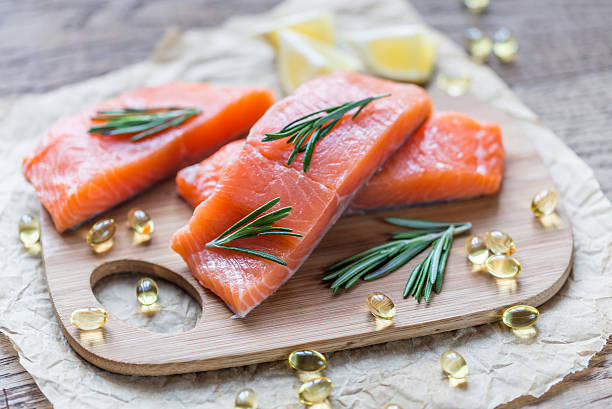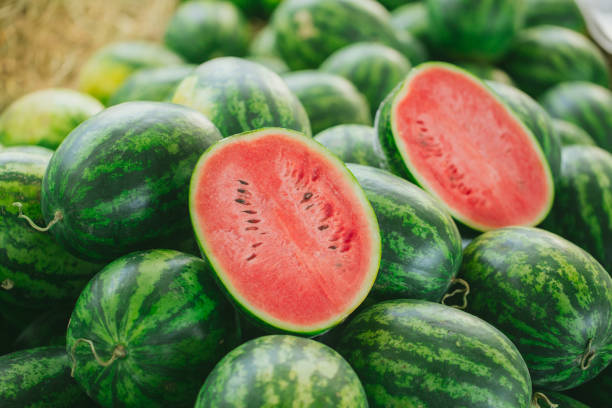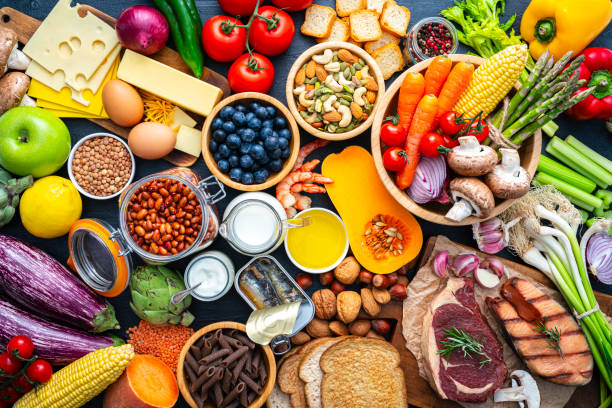Good blood flow is the key to energy, stamina, and overall health. When your circulation is strong, your body delivers oxygen and nutrients more efficiently to every cell. This means your muscles recover faster, your brain stays sharp, and your heart works with less strain. Healthy circulation also removes waste and toxins from the body, which helps you feel lighter and more energized throughout the day. In fact, many experts link poor circulation to fatigue, brain fog, and even reduced physical performance.
The good news? You don’t always need supplements or expensive treatments to see real improvements. Nature has given us foods that naturally boost blood flow and strengthen your cardiovascular system. By making simple changes to your diet, you can support your circulation in a safe and effective way.
In this guide, we’ll cover 12 proven foods backed by science that can help improve circulation and support your performance—whether that’s during daily activities, long workdays, or at the gym. Each foods comes with unique nutrients that help your blood vessels relax, your heart pump stronger, and your body perform at its best.
Let’s dive in and explore these natural circulation-boosting foods.
Why Blood Flow Matters
Before we look at the foods, let’s talk about why circulation is so important.
Healthy blood flow:
- Delivers oxygen to your muscles and brain.
- Removes waste and toxins from the body.
- Supports heart and blood vessel health.
- Helps maintain energy and endurance.
- Plays a role in better sexual performance and vitality.
Poor circulation, on the other hand, can lead to fatigue, cold hands and feet, and even long-term health issues. That’s why adding circulation-boosting foods to your diet is a simple but powerful step.
12 Foods That Naturally Boost Blood Flow
1. Beets

Beets are one of the most powerful foods for circulation and overall vascular health. Their deep red color comes from plant compounds called betalains, which have strong antioxidant and anti-inflammatory effects. But what really makes beets special is their high nitrate content. When you eat beets, your body converts these nitrates into nitric oxide.
Nitric oxide acts like a natural blood vessel relaxer. It helps arteries open up, allowing blood to flow more freely. This not only supports healthy blood pressure but also improves the delivery of oxygen and nutrients throughout your body. Better circulation means more energy, faster recovery, and greater endurance.
Research has shown that beet juice can enhance exercise performance by boosting stamina and oxygen delivery to the muscles. Athletes often use beets as a natural way to increase endurance, but the benefits extend to everyday life too. Even people who simply want to support heart health or reduce fatigue can benefit from adding beets to their diet.
How to enjoy them: Add beets to salads, smoothies, or roast them as a side dish. You can also try beet juice before a workout for a natural energy boost.
2. Leafy Greens
Spinach, kale, and arugula are packed with nitrates, just like beets, making them excellent foods for healthy circulation. When you eat leafy greens, your body converts these nitrates into nitric oxide, which helps relax and widen your blood vessels. This process improves circulation, supports lower blood pressure, and reduces strain on your heart.
Leafy greens are also rich in antioxidants like vitamin C, beta-carotene, and flavonoids. These compounds protect your blood vessels from oxidative stress, which can lead to stiffness or damage over time. By keeping your arteries flexible and strong, leafy greens lower the risk of heart problems and support long-term vascular health.
On top of that, these greens provide fiber, magnesium, and potassium—nutrients that work together to balance blood pressure and improve overall energy levels. Eating them regularly is a simple way to boost blood flow and keep your body performing at its best.
Quick tip: Toss a handful of spinach into your morning omelet or smoothie for a natural circulation boost. You can also add kale to soups, pasta dishes, or enjoy arugula as a fresh base for salads.
3. Citrus Fruits
Oranges, lemons, and grapefruits are foods rich in vitamin C, one of the most important nutrients for circulation and heart health. Vitamin C helps keep blood vessels strong and elastic, allowing them to handle blood flow more efficiently. It also plays a key role in collagen production. Collagen is a protein that forms the structure of arteries and veins, keeping them flexible and less prone to damage.
But the benefits don’t stop there. Citrus fruits are also packed with antioxidants called flavonoids. These compounds help fight inflammation, reduce oxidative stress, and improve overall vascular health. By protecting the lining of your arteries, citrus fruits support smoother blood flow and lower the risk of plaque buildup.
Research has linked higher vitamin C intake with a reduced risk of heart disease and improved vascular function. In addition, the natural hydration and fiber found in citrus fruits help regulate blood sugar and support healthy cholesterol levels, which both play a role in circulation.
Best choices: Fresh oranges, grapefruit slices, or lemon water. You can also add lime juice to salads, marinades, or sparkling water for an extra refreshing boost.
4. Garlic
Garlic has been used for centuries as a natural remedy for heart and vascular health. Its power comes from sulfur compounds, especially allicin, which is released when garlic is chopped or crushed. Allicin helps relax and widen blood vessels, making them more flexible and improving circulation. This effect supports healthier blood pressure and reduces strain on the heart.
Beyond circulation, garlic is also known for its antioxidant and anti-inflammatory benefits. These properties protect blood vessels from oxidative stress, which can lead to stiffness and narrowing over time. By keeping arteries healthy, garlic plays a role in lowering the risk of heart disease and supporting long-term cardiovascular function.
Research backs this up—one study found that garlic supplements improved blood flow and vascular health in people with heart conditions. Other studies suggest that garlic may help lower cholesterol levels, adding another layer of protection for your circulation system.
Easy use: Add fresh garlic to stir-fries, soups, or roasted vegetables. You can also mix minced garlic into salad dressings or spreads for an extra flavor boost and heart-healthy kick.
5. Pomegranate
Pomegranate is one of the most powerful fruits for circulation and overall vascular health. It is loaded with antioxidants, especially polyphenols, which protect the lining of your arteries from damage and help them stay flexible. Pomegranate is also high in nitrates, which your body turns into nitric oxide. This compound relaxes blood vessels, improves blood flow, and supports healthy blood pressure.
For active people, pomegranate can be especially beneficial. Studies show that drinking pomegranate juice before exercise may boost stamina, reduce muscle soreness, and speed up recovery. This is because better circulation delivers more oxygen and nutrients to your muscles while flushing out waste products more efficiently.
Pomegranate is also linked to better heart health. Regular intake may help lower cholesterol, reduce inflammation, and support long-term cardiovascular function. It’s a sweet and refreshing way to give your circulation a natural boost.
Snack idea: Drink 100% pomegranate juice or sprinkle the seeds over yogurt. You can also add the seeds to salads, oatmeal, or smoothies for extra flavor and heart-healthy benefits.
6. Fatty Fish

Salmon, mackerel, sardines, and other fatty fish are foods excellent in omega-3 fatty acids, which are some of the best nutrients for circulation and heart health. Omega-3s are healthy fats that help reduce inflammation in the body, making it easier for blood to move through your vessels. They also help lower blood pressure and improve the function of the endothelium, the thin layer of cells that line your arteries and control blood flow.
Another benefit of omega-3s is that they make your blood less likely to clot. This supports smoother circulation and reduces the risk of blockages that can affect heart health. Regularly eating fatty fish has been linked to lower rates of heart disease, healthier cholesterol levels, and improved overall vascular health.
For athletes and active individuals, omega-3s may also improve endurance and recovery by ensuring muscles get the oxygen and nutrients they need during exercise. Even for people who don’t exercise regularly, adding fatty fish to your diet is a simple way to keep your circulation system strong.
Meal idea: Enjoy grilled salmon with a side of leafy greens for a double circulation boost. You can also try sardines on whole-grain toast or add mackerel to salads for a quick, heart-healthy meal.
7. Dark Chocolate
Yes, foods like chocolate can be good for you—if you choose the right kind. Dark chocolate with at least 70% cocoa is packed with flavonoids, which are powerful plant compounds known to support heart and vascular health. Flavonoids help stimulate nitric oxide production in the body, which relaxes and widens blood vessels. This process improves circulation, lowers blood pressure, and helps your blood flow more smoothly.
Unlike milk chocolate, which is often loaded with sugar and unhealthy fats, dark chocolate provides these benefits without the extra empty calories. Research shows that moderate intake of dark chocolate can improve vascular function and even lower the risk of heart disease. Some studies suggest it may also boost brain function by increasing blood flow to the brain, improving focus and memory.
Dark chocolate also contains magnesium, iron, and antioxidants that fight free radicals and reduce inflammation—both of which protect your arteries over time. Just remember, moderation is key. Too much chocolate, even dark, can add unnecessary sugar and calories.
Enjoy wisely: Have a small square of dark chocolate as an afternoon treat. You can also grate it over oatmeal, mix it into smoothies, or pair it with berries for a heart-healthy dessert.
8. Nuts and Seeds
Almonds, walnuts, flaxseeds, and chia seeds are some of the best foods you can eat for circulation and heart health. They are rich in healthy fats, especially omega-3 fatty acids, which help reduce inflammation and keep blood vessels flexible. This makes it easier for blood to flow smoothly through your arteries.
These foods are also packed with magnesium, a mineral that supports muscle and blood vessel relaxation. Magnesium helps regulate blood pressure and reduces the strain on your cardiovascular system. On top of that, nuts and seeds provide vitamin E, a powerful antioxidant that protects blood vessels from damage caused by free radicals.
Regularly eating nuts and seeds has been linked to lower cholesterol, reduced risk of heart disease, and improved circulation. They are also high in fiber and protein, which makes them a filling snack that supports weight management and stable energy levels throughout the day.
Snack smart: Grab a handful of mixed nuts or sprinkle chia seeds over your smoothie bowl. You can also add flaxseeds to oatmeal, blend walnuts into sauces, or top your salad with almonds for a crunchy, heart-healthy boost.
9. Berries
Strawberries, blueberries, raspberries, and blackberries are among the most powerful fruits for heart health and circulation. They are rich in antioxidants called anthocyanins, the natural pigments that give berries their deep red, blue, and purple colors. These compounds help protect the lining of your arteries, reduce stiffness, and promote smoother blood flow.
Berries also fight inflammation and oxidative stress, two major factors that can damage blood vessels over time. By keeping arteries flexible and strong, regular berry intake supports lower blood pressure and healthier circulation. They are also packed with fiber, vitamin C, and potassium—all nutrients that work together to support vascular health and energy levels.
Research backs up these benefits. A Harvard study found that women who ate berries several times a week had a lower risk of heart attacks. Other studies show that berries may also improve brain function by boosting blood flow to the brain, which helps with memory and focus.
Pro tip: Add fresh berries to oatmeal, yogurt, or salads. You can also blend them into smoothies, bake them into whole-grain muffins, or simply enjoy a fresh bowl of mixed berries as a sweet, heart-healthy snack.
10. Turmeric
Turmeric is a golden spice that has been used for centuries in traditional medicine, especially in India and Asia. Its active compound, curcumin, is well-known for its strong anti-inflammatory and antioxidant effects. In terms of circulation, curcumin supports nitric oxide production in the body. This helps relax blood vessels, improve their flexibility, and boost overall blood flow.
By reducing inflammation, turmeric also protects the lining of your arteries from damage. Chronic inflammation is a common cause of blood vessel stiffness and poor circulation, so adding turmeric to your diet can be a simple way to keep your cardiovascular system healthy. Some studies suggest that curcumin may even lower the risk of heart disease and support better recovery after exercise by improving oxygen delivery to the muscles.
Turmeric is also versatile in cooking. You can add it to savory dishes for flavor and color, or enjoy it in drinks for a soothing health boost.
Easy use: Add turmeric to curries, soups, or make golden milk tea. You can also sprinkle it into rice, roasted vegetables, or blend it into smoothies for a warm, earthy flavor.
11. Watermelon

Watermelon is more than just a sweet and refreshing summer fruit—it’s also great for circulation. It is rich in an amino acid called L-citrulline. Once inside the body, L-citrulline is converted into L-arginine, which then helps produce nitric oxide. Nitric oxide relaxes and widens blood vessels, making it easier for blood to flow and supporting healthy blood pressure.
Because watermelon is mostly water, it also helps keep you hydrated. Proper hydration is essential for good circulation since your blood is made up largely of water. When you are well-hydrated, your heart can pump blood more effectively, and your muscles and brain receive the oxygen they need.
On top of that, watermelon contains antioxidants like lycopene and vitamin C, which protect blood vessels from damage and support heart health. Some studies even suggest that regular intake of watermelon may reduce arterial stiffness, which is a key factor in maintaining long-term vascular health.
Summer idea: Blend watermelon into a refreshing smoothie. You can also enjoy chilled watermelon slices, make a fruit salad, or freeze cubes for a hydrating snack on hot days.
12. Cayenne Pepper
Cayenne pepper is a spicy ingredient with big benefits for circulation. Its active compound, capsaicin, is what gives it that signature heat. Capsaicin works by relaxing and widening blood vessels, which helps blood flow more freely throughout the body. This process supports lower blood pressure and improves oxygen delivery to your muscles, brain, and heart.
Cayenne pepper may also help reduce plaque buildup in the arteries over time. By preventing blockages, it supports long-term heart health and lowers the risk of circulation problems. Some studies even suggest that capsaicin can help improve metabolism, which adds an extra bonus for energy and weight management.
On top of its health perks, cayenne pepper is an easy way to add bold flavor to your meals without extra calories. A little goes a long way, so you don’t need much to experience its circulation-boosting benefits.
Try this: Add a dash of cayenne to soups, eggs, or even hot chocolate for a spicy kick. You can also sprinkle it over roasted vegetables, mix it into marinades, or use it in homemade sauces for a fiery, heart-healthy boost.
Simple Lifestyle Habits to Support Circulation
While foods is powerful, pairing it with good habits will maximize results:
- Stay active: Aim for at least 30 minutes of exercise daily.
- Stay hydrated: Water keeps blood volume and flow at healthy levels.
- Limit smoking and alcohol: Both can damage blood vessels.
- Manage stress: Relaxation and deep breathing improve circulation.
Final Thoughts
Boosting your blood flow doesn’t have to be complicated or expensive. By adding these 12 proven foods to your daily meals—like beets, fatty fish, garlic, citrus fruits, and berries—you can give your body the tools it needs to support circulation naturally. Each of these foods contains unique nutrients that work together to keep your arteries flexible, your blood flowing smoothly, and your heart performing at its best.
Better circulation isn’t just about heart health—it’s about your quality of life. Strong blood flow means more energy for work and play, sharper focus for your mind, faster recovery after exercise, and even better stamina in your daily life. Over time, these small changes in your diet can lead to big improvements in your health, performance, and overall vitality.
Now it’s your turn: Which of these foods will you try first to boost your blood flow? Share your thoughts in the comments below!

